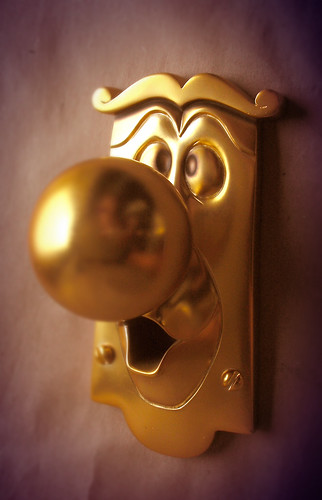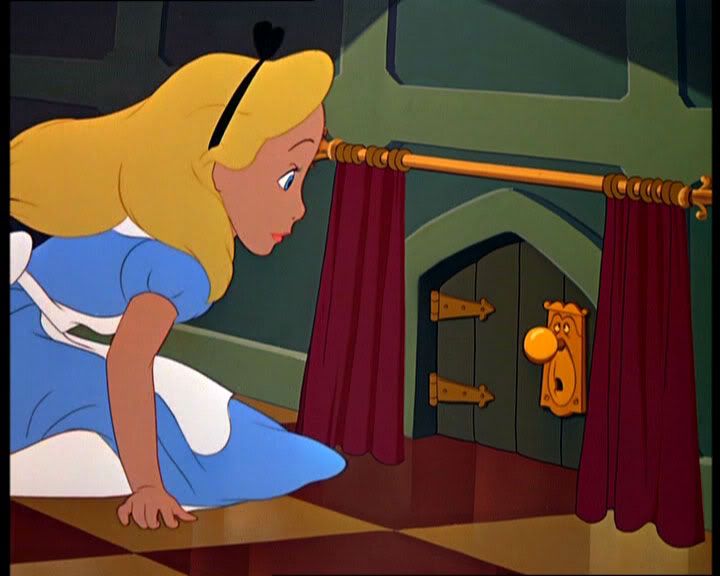
Alice In Wonderland Door Knob
The Mysterious Alice in Wonderland Syndrome
By Byron Sanchez - Ezinearticles
Imagine this - it is a nice clear night and you are tired. You intend on going to sleep soon. Before going to bed, you walk outside to take out the trash. While walking back inside, a car passes in the nearby street. But unlike any car you have ever seen before, it is unusually small. In fact, you feel like you are a giant in proportion to the car. As you walk towards the door of your house and reach for the knob, you see your hands outstretch for what seem like miles (and the doorknob seems to be far away as well). And as you walk into the house you see that your couch is huge. What is going on?

These are all symptoms from something known as "Alice In Wonderland Syndrome (AIWS)." It is something that I have not heard much about before. But after reading one person's experience, I decided to do some research. Believe it or not, many people may experience this. It sounds like it comes from a description for the effects of substance abuse or maybe a sickness or illness of some sort. But some people who have suffered from this say they have been to doctors, had MRI scans and could ultimately not find what was wrong with them.

Imagine experiencing these symptoms on occasion. It would be a very big inconvenience. Not to mention the stress from not knowing why you are experiencing it. Yet others who have experienced AIWS have said it sometimes would not go away. The causes for such a strange and possibly unheard of experience seem elusive. It can be difficult to pinpoint the trigger for something that others have not experienced. Without the ability to compare cases and accounts, one would have to guess the potential causes.

The internet, of course, helped change that. One account after another was posted. Research began and sufferers of AIWS knew they were not alone. With all the work being done by those who were interested or by those who suffered from AIWS, potential and possible causes were found. There are several and some include classic migraines, the Epstein-Barr virus and Temporal Lobe Epilepsy. Not only were potential causes found, but it is also being said that children from the ages of 5-10 most commonly suffer from AIWS, usually at night when lighting is scarce.

AIWS is also known as Micropsia. Micropsia, in short, is a condition that affects visual perception- objects look smaller than they really are. Therefore, it makes sense to note that to someone suffering from this condition, objects may appear to be far away and "stretching into the distance," just as real faraway objects tend to look small. A condition with the opposite effects of Micropsia is known as Macropsia. Those who suffer from Macropsia see things bigger than they really are. AIWS is often used to refer to either condition.

Treatments for AIWS vary. This is due to the fact that there are several potential causes. In fact, I was unable to find any one definite treatment that would help in every case. It seems the route most people would take would be to either check for or cure the potential causes. Migraines are said to be a potential cause, so some people with AIWS try to treat the migraines. The same would apply to other potential causes.

AIWS has some strange effects. The idea that it can happen to anyone is scary. Most often, it seems, they occur in children. Obviously, the name "Alice in Wonderland Syndrome" stems from Lewis Carroll's "Alice's Adventures in Wonderland." But it is very interesting to note that Carroll did have at least one episode of a classical migraine during his lifetime. Thus, there is some question and belief that he may have actually experienced AIWS himself. Much progress has been made since the time of the first few publicized reports. As more research is done, hopefully we will know even more about AIWS.

Alice In Wonderland Door Knob

No comments:
Post a Comment
Hi, please feel free to share your comment here.
For example: Which pictures is the best?
Thanks,
Admin